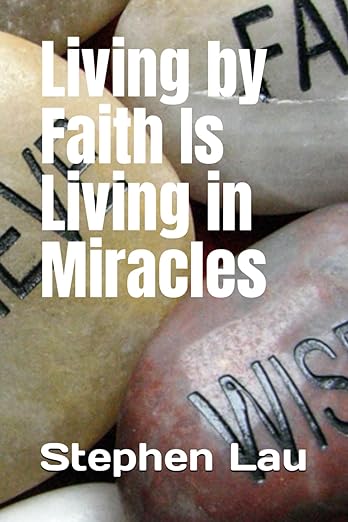In life, there're many paradoxes due to inadequate and imperfect human understand. That may be a reason why God wants to give humans spiritual wisdom.
A paradox is a statement with two totally “opposite” meanings that may seem contradictory to each other and yet together they not only are true but also make some sense.
The paradox of knowing God
Knowing God has many paradoxes: the Creator becomes a human; the Infinite becomes finite; the Eternal One enters time; and death is the way to life. These are some of the paradoxes expressed in the Holy Bible.
The paradox of God’s Presence
God’s Presence is another hard-to-explain paradox. Indeed, sometimes we see God’s love, mercy, and justice, but there’re also times we see only His indifference, condemnation, and even injustice. In fact, there're many times humans are prone to asking the pivotal question: “Where is God?”
The paradox of two-in-one person
You’re a two-in-one person. As a matter of fact, we all are, to a certain extent. Yes, there’re two persons living inside you: one is your ego-self; the other is your spirit. They co-exist: your ego-self is living in the physical or material world, while your spirit is living in a totally different environment with a different dimension. There’s constant and continual contact and interaction between these two personalities.
Your ego-self is assertive, and even aggressive, always telling you that you’re separated from everyone else. Your ego-self wants more of everything in your life, not only to define who you’re but also to separate you from others, making you more special. Your ego-self is judgmental, not only self-evaluating but also assessing others through comparison and contrast with yourself. Your ego-self is constantly shifting and shuffling back and forth between the past and the future, instrumental in improving the ego-self in the past, as well as in enhancing the ego-self projected into the future.
Your spirit is the other person living inside you. Your spirit, on the other hand, is gentle and submissive in nature, always nudging you to do what is right and to avoid doing what is wrong.
The paradox is that both your ego-self and your spirit co-exist, and that each strives to dominate and influence the other.
The classic illustration of the two-in-one person is Robert Louis Stevenson’s famous story of “Dr. Jekyll and Mr. Hyde.” In the story, both Dr. Jekyll and Mr. Hyde have a dark side within them, where evil is always lurking underneath and ready to surface anytime. In the end, it turns out that Dr. Jekyll and Mr. Hyde are actually “one and the same person.”
Given that the ego-self and the spirit co-exist, and that one can never totally get rid of the other, the reality is that the more control the ego-self has over the spirit, the more difficult it is to understand God’s Presence, not to mention to attain and appreciate His spiritual wisdom. Your belief is your way to unravel the paradox of two-in-one person.
The paradox of moralism
Moralism is a two-way street: people look at others from their own perspectives, while others may also look at themselves from totally different perspectives too. Moralism can drive people away from God because they cannot or are unwilling to change their own behaviors, and thus they somehow feel rejected by God.
Moralism can also make people become inactive in their religious life because they may believe that they can still be “moral” even outside of the church. Moralism, an important aspect of most religions, can, ironically enough, drivee people away from God.
The paradox of understanding
Belief begins with understanding. Man is a “rational” being, always demanding an explanation for anything and everything in life. So, understanding is vital to believing. The paradox is that believing first may enhance subsequent understanding.
According to St. Augustine, the Bishop of Hippo (354-430 A.D.), in life there’re certain things we don’t believe unless we understand them, and there’re also other things that we don’t understand unless we believe them first. So, faith is not opposed to understanding, nor is it independent of understanding. St. Augustine’s famous statement “faith seeking understanding” is an act of believing first, without which unbelief closes the door to further understanding. In other words, we must always believe first, and our understanding will then follow. It’s just that simple.
St. Anselm of Canterbury, a well-known Christian philosopher and theologian of the eleventh century, also echoed St. Augustine’s statement in his famous motto: “I do not seek to understand in order that I may believe, but I believe in order to understand.”
So, you must believe first so that you may see and understand your belief, which is your faith in God.
Living by faith: Only God can make you "understand" what He wants you to understand. So, ask and it will be given to you.
Stephen Lau


No comments:
Post a Comment